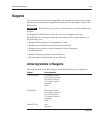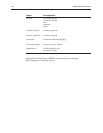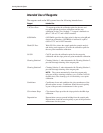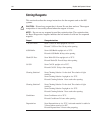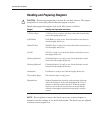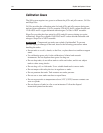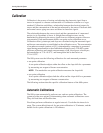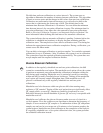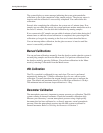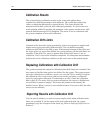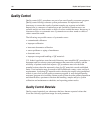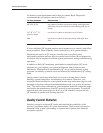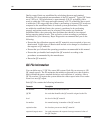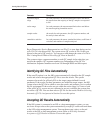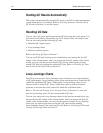
1Ć47
Learning About the System
The system displays a status message indicating that a one-point metabolite
calibration is due at the completion of the sample analysis. The glucose sensor is
inactive until the calibration is successfully completed. You cannot defer this
calibration.
Second, after completing the calibration, the system sets a 5 minute timer. If no
samples are run within this period, the system performs another metabolite recal at
the end of 5 minutes. You can defer this calibration by running samples.
If two consecutive QC samples are run within 4 minutes of each other during the 5
minute timer or when the second calibration is completed, the system begins the
calibration cycle again by returning to the first set of criteria described above.
You can interrupt either calibration, but the glucose sensor is inactive until the
sensor is successfully calibrated.
Manual Calibrations
You can perform calibrations manually from the Analyze mode when the system is
not analyzing samples and from the Menu mode. You perform calibrations from
the Analyze mode by pressing Calibrate. You perform calibrations in the Menu
mode by selecting Calibrations from the Menu screen.
tHb Calibration
The CO-ox module is calibrated for zero and slope. The zero is performed
automatically during the 7.3 Buffer calibration step of a one- and two-point
calibration. You must introduce the reagent that the system uses to measure the
slope. The default and maximum interval for a tHb slope calibration is 30 days.
The minimum interval between slope calibrations is 1 day.
Barometer Calibration
The atmospheric pressure is important to ensure accurate gas calibration. The 800
system contains an internal barometer. Check the barometer calibration daily.
Measure your laboratory’s current atmospheric pressure using a high-quality
barometer that has been calibrated to, or directly measures, actual atmospheric
pressure. Enter the atmospheric pressure into the 800 system to calibrate its
internal barometer. Refer to Checking the Barometer in Section 3.



